What does the rise in non-Christians mean for the Church of England?
Latest census reveals England and Wales now minority Christian countries for first time
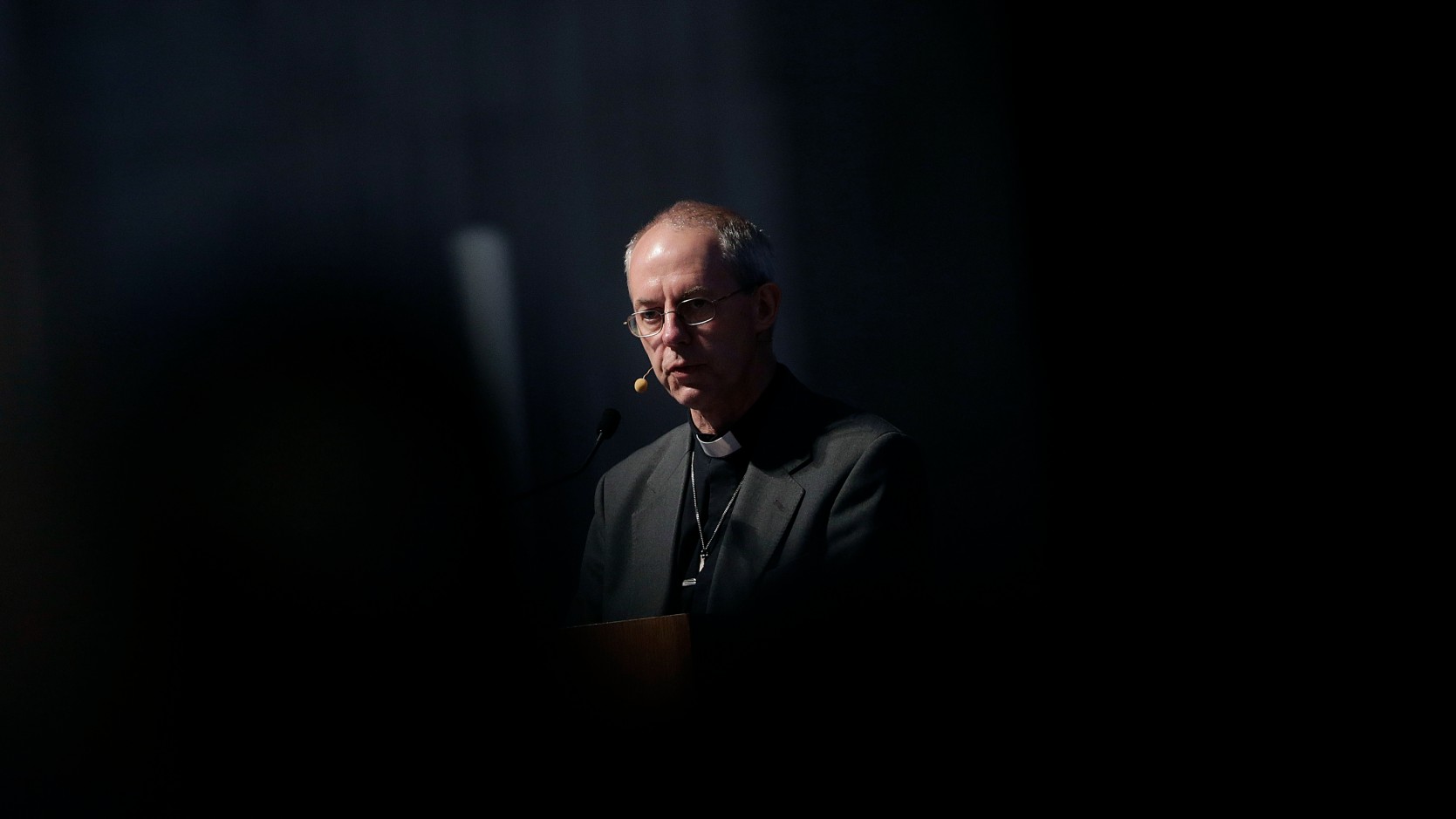
A free daily email with the biggest news stories of the day – and the best features from TheWeek.com
You are now subscribed
Your newsletter sign-up was successful
The proportion of people in England and Wales who describe themselves as Christian has fallen below 50% for the first time, the 2021 census has revealed.
The percentage of those identifying as Christian when asked “what is your religion” fell to 46.2% last year, down from 59.3% in 2011 when the last census was conducted, a drop of 5.5 million people.
The number of people saying they had no religion increased to 37.2%, which means there are now nearly as many people who do not believe in a higher power as Christians in England and Wales.
The Week
Escape your echo chamber. Get the facts behind the news, plus analysis from multiple perspectives.

Sign up for The Week's Free Newsletters
From our morning news briefing to a weekly Good News Newsletter, get the best of The Week delivered directly to your inbox.
From our morning news briefing to a weekly Good News Newsletter, get the best of The Week delivered directly to your inbox.
The figures make grim reading for the Church of England, which was already facing record low church attendances and an ageing congregation, with many now saying it faces an existential threat to its centuries-old place at the heart of British society.
What did the papers say?
“It may feel like a pivotal moment,” said BBC religion editor Aleem Maqbool, “but for years social surveys have shown a rapid rise in those who define themselves as having no religion.” Now that figure is 27.5 million.
The Guardian reported that humanists and secularists have “seized on the figures as proof of the need for reform of religion’s role in a society which has bishops of the established Church of England voting on laws and compulsory Christian worship in all schools that are not of a designated religious character.
“One of the most striking things about these census results is how at odds the population is from the state itself,” the chief executive of Humanists UK, Andrew Copson, told the paper. “No state in Europe has such a religious set-up as we do in terms of law and public policy, while at the same time having such a non-religious population.”
A free daily email with the biggest news stories of the day – and the best features from TheWeek.com
Professor Alec Ryrie, of the University of Durham’s theology and religion department, told the i news site that “there’s every reason to think the fall in 2031 will be even sharper”, as the traditional English identity had been “rapidly softening since the 1960s”. “It may be that Christianity will no longer be a dominant or a default identity, but a religion of outsiders and of the marginalised,” he said.
In a striking sign that a decline in religiosity is not universal, census data revealed that every major religion, except Christianity, increased in followers over the latest ten-year period, with more than 1.2 million more people identifying as Muslim in England and Wales in 2021 than in 2011.
“As with ethnicity, patterns of family size and immigration are seen as contributory factors”, said Maqbool.
What next?
The Archbishop of York, Stephen Cottrell, said the latest census result “throws down a challenge to us not only to trust that God will build his kingdom on Earth but also to play our part in making Christ known.
“We have left behind the era when many people almost automatically identified as Christian but other surveys consistently show how the same people still seek spiritual truth and wisdom and a set of values to live by.”
But speaking to Fox News, Gavin Ashenden, a former Church of England priest who served as chaplain to Queen Elizabeth II from 2008 until he resigned in 2017, said the Church’s attempt to remain cultural relevant was rapidly losing it followers.
Ashenden, who is now a Roman Catholic, said he believed Anglicans and Protestants generally have experienced a “huge crisis in confidence” since losing their faith in the authority of the Bible, which he claimed has been replaced with political correctness.
“Political correctness arrived just at the point when the Protestants were losing maximum confidence, so they grabbed fairness, equality, inclusion,” he said. “This became for them a safety harness for all their utopian longing, which in a generation before, they would have put into heaven and hell.”
Modernising proposals are being fought against tooth and nail by congregations and clergy across the UK, with vicar Angela Tilby in the Church Times claiming the mass closure of rural churches “will change the landscape of England for ever”.
“In small country communities, it could extinguish any remaining trust in the Church of England,” she warned.
“The institution seems hollowed out, defensive and diminished,” said the New European, and “although it strives to remain relevant in today’s society... it is these days pretty marginal to most people’s lives”.
Some point to the success of initiatives such as the Alpha Course, which attract a much younger demographic than traditionally attend church, as a model the wider Church of England could follow. Cottrell claimed that Christianity continues to play a major role in secular society, especially during the current cost-of-living crisis, when “people right across the country, some in desperate need, will be turning to their local church, not only for spiritual hope but practical help”.
This is ultimately a functionalist view of religion, “that a shared faith serves the needs of a society”, said Sumit Paul-Choudhury for BBC Future.
“Under this argument, any religion that does endure has to offer its adherents tangible benefits,” he said. The alternative “we take for granted” but are “also oddly blind to”, he added, is that “religions are born, grow and die”.
In the 1960s, when asked whether he thought the church would survive, the former archbishop of Canterbury, Michael Ramsey replied: “Well, you know, that is not certain. Not certain, not certain at all. It might easily, quite easily, just fall away.”
“All Christian denominations are in long-term decline, but the established church particularly so,” concluded the New European. “On current projections, Ramsey’s prediction may even come true within 40 years.”
-
 Nuuk becomes ground zero for Greenland’s diplomatic straits
Nuuk becomes ground zero for Greenland’s diplomatic straitsIN THE SPOTLIGHT A flurry of new consular activity in the remote Danish protectorate shows how important Greenland has become to Europeans’ anxiety about American imperialism
-
 ‘This is something that happens all too often’
‘This is something that happens all too often’Instant Opinion Opinion, comment and editorials of the day
-
 House votes to end Trump’s Canada tariffs
House votes to end Trump’s Canada tariffsSpeed Read Six Republicans joined with Democrats to repeal the president’s tariffs
-
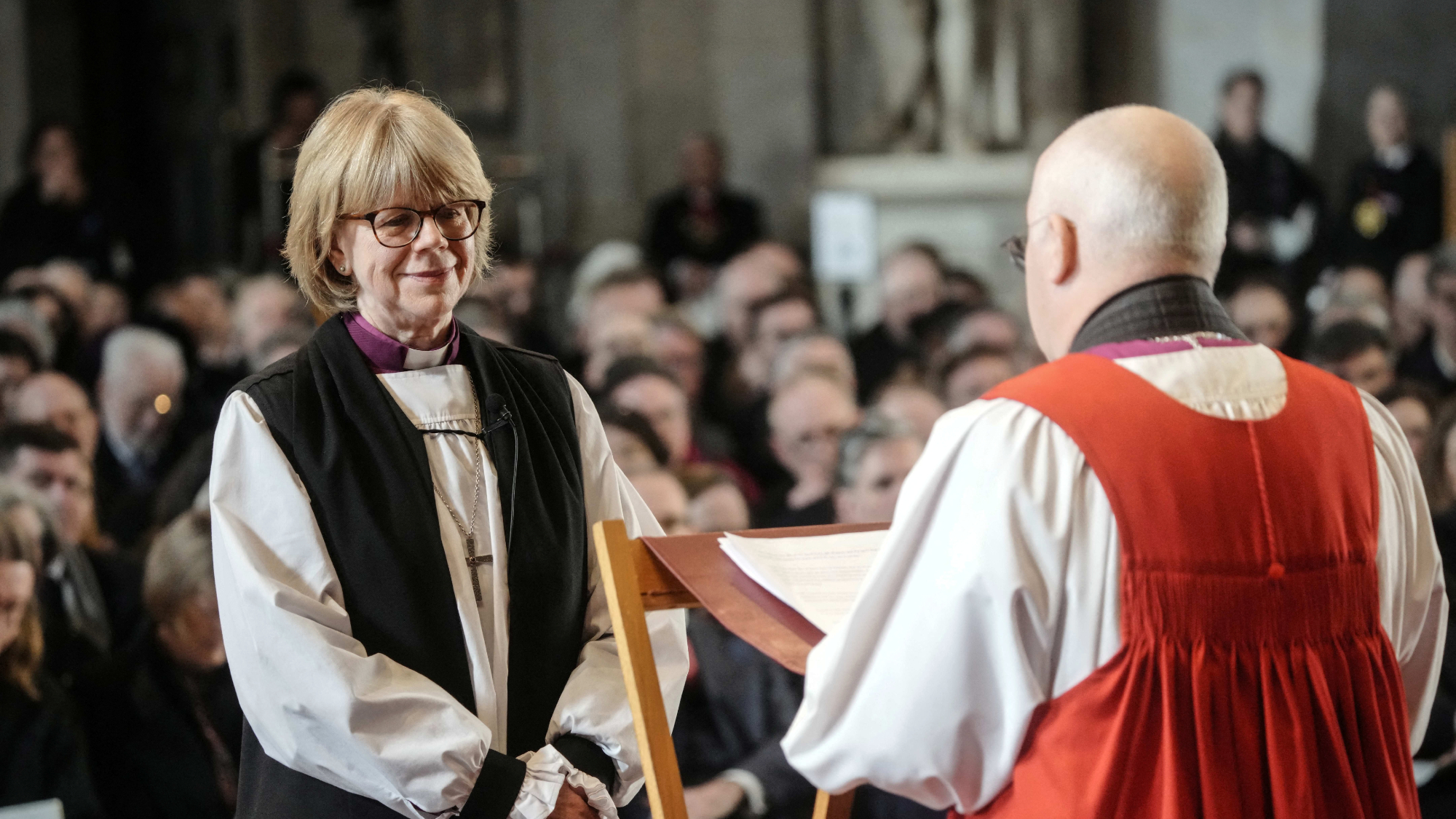 Church of England instates first woman leader
Church of England instates first woman leaderSpeed Read Sarah Mullally became the 106th Archbishop of Canterbury
-
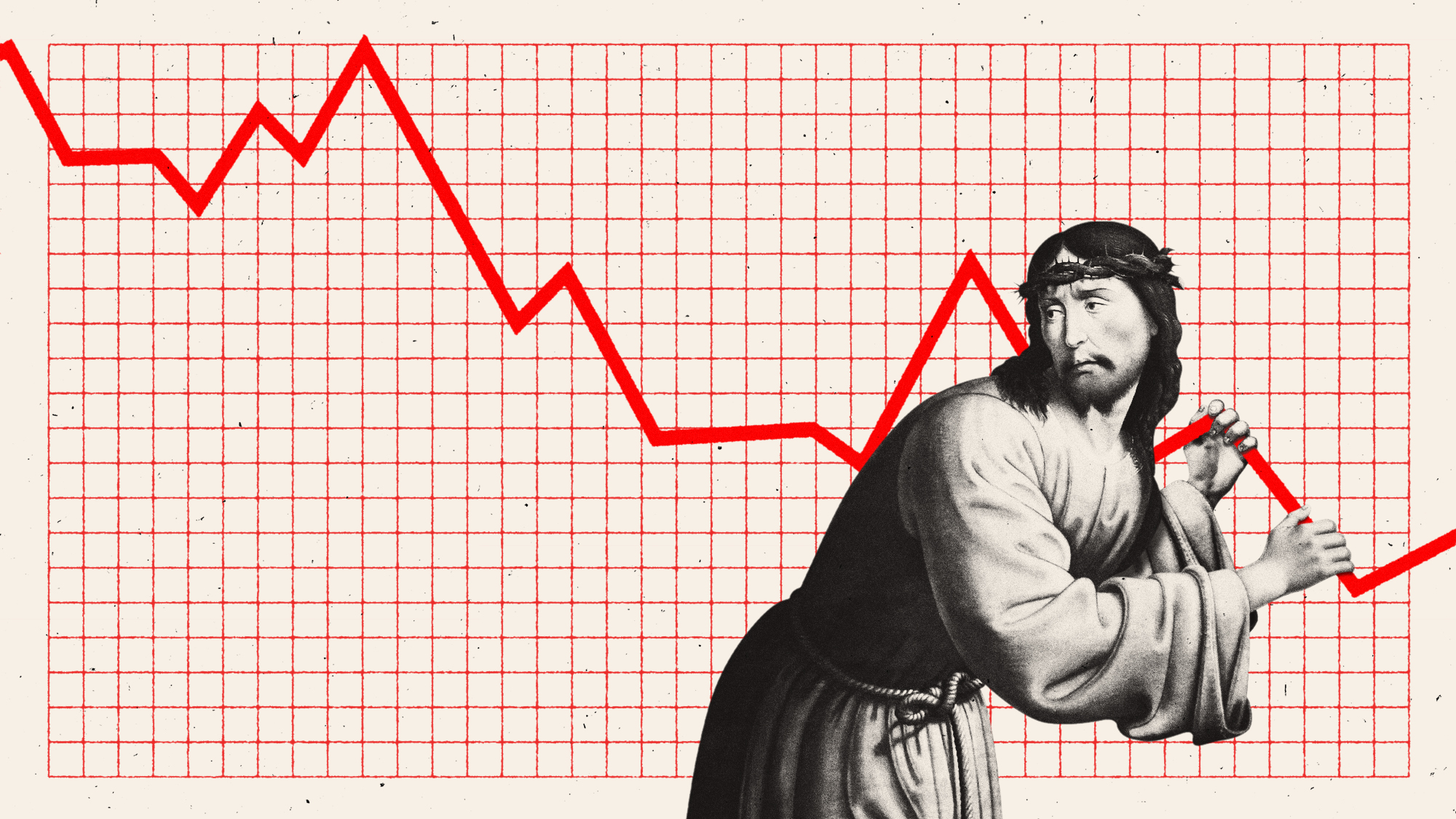 The UK’s supposed Christian revival
The UK’s supposed Christian revivalThe Explainer Research has shown that claims of increased church attendance, particularly among young people, ‘may be misleading’
-
 Syria's Druze sect: caught in the middle of Israeli tensions
Syria's Druze sect: caught in the middle of Israeli tensionsThe Explainer Israel has used attacks on religious minority by forces loyal to Syria's new government to justify strikes across the border
-
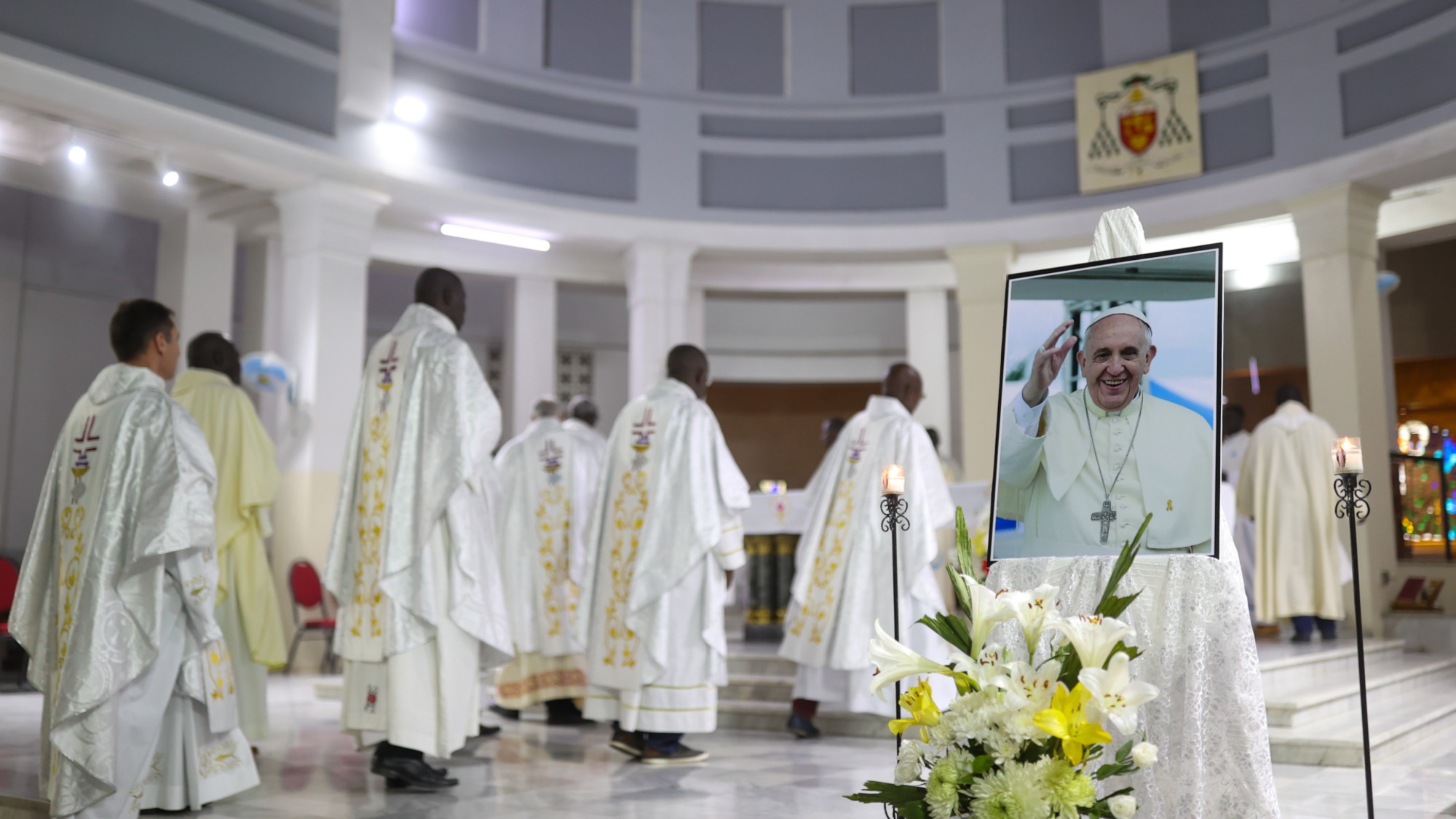 What would an African pope mean for the continent?
What would an African pope mean for the continent?Today's Big Question The Catholic Church has never had a pope from Africa in its modern history
-
 The young converts leading Catholicism's UK comeback
The young converts leading Catholicism's UK comebackIn the Spotlight Gen Z and younger millennials drawn to 'clarity and certainty' in an age of 'perma-conflict'
-
 Maha Kumbh Mela: world's largest religious festival gets under way in India
Maha Kumbh Mela: world's largest religious festival gets under way in IndiaIn The Spotlight Politics of Hindu nationalism has cast a shadow over event touted as biggest ever gathering of humanity
-
 Why India is concerned at Bangladesh's 'Hinduphobia'
Why India is concerned at Bangladesh's 'Hinduphobia'The Explainer Arrest of monk Chinmoy Krishna Das stokes safety concerns for Hindu minority in Bangladesh
-
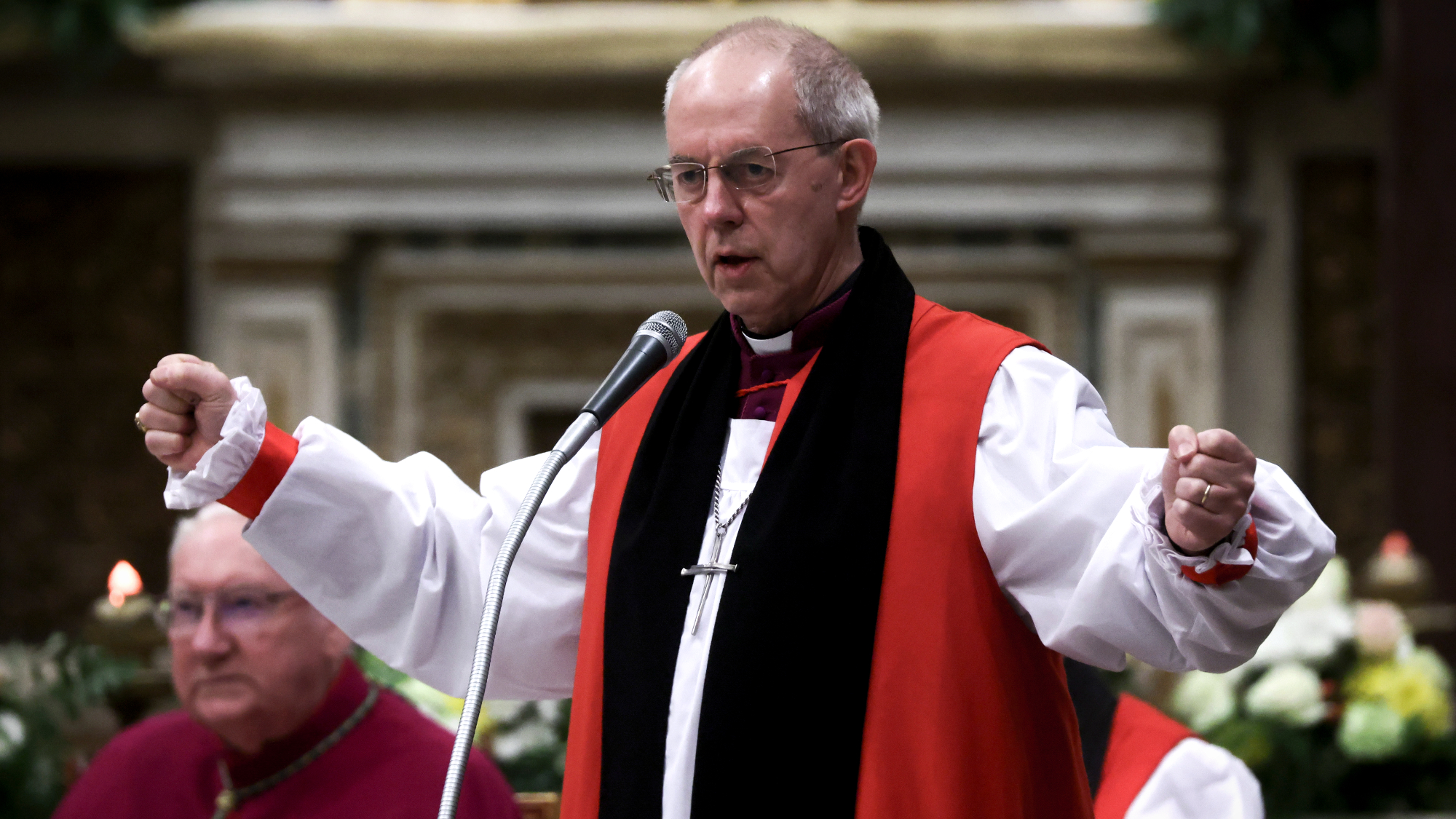 Church of England head resigns over abuse scandal
Church of England head resigns over abuse scandalSpeed Read Archbishop of Canterbury Justin Welby faced backlash over his handling of a notorious child abuser